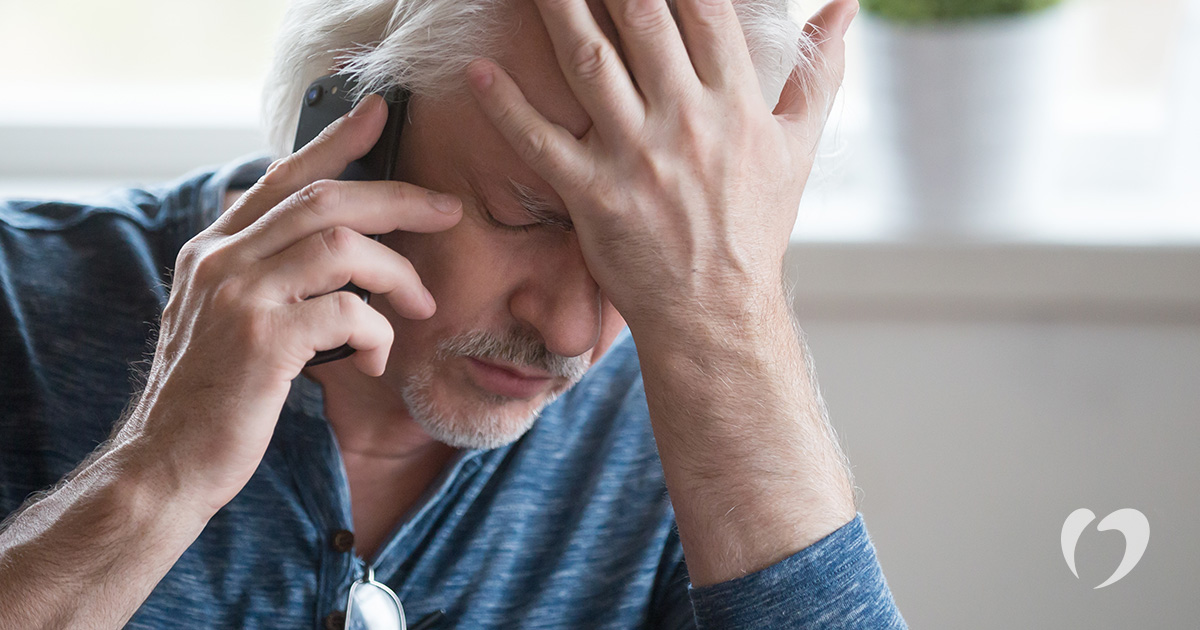Depression and Heart Disease

It’s not uncommon for someone who has suffered a heart attack or been diagnosed with other heart disease to feel sad or depressed. But if symptoms of depression last longer than two weeks or are severe, you should discuss your symptoms with your doctor.
There’s a strong link between cardiovascular disease and depression. About one in five people who suffer a heart attack experience depression soon after. And people with depression have a higher risk of heart disease even if they have no prior history or other risk factors.
The link between depression and heart disease
While the exact cause of the connection isn’t known, depression symptoms can be twice as high in people who have suffered a heart attack compared to the average population.
Heart attack and heart failure can limit a person’s normal daily activities, which may contribute to developing depression. A patient may also feel guilty for unhealthy habits that contributed to their heart attack or feel uncertain about their future or their ability to return to normal activity.
For some patients with depression, medications could increase the risk of heart disease, as they may cause weight gain and high blood pressure, which puts additional strain on the heart.
How depression impacts patients with heart disease
Depression can have a negative impact on recovery from a heart attack due to decreased motivation, which may result in not exercising, not eating right or returning to smoking or alcohol use. Depression can also cause changes in the nervous system and disrupt hormonal balance, which may lead to irregular heart rhythms that could be life threatening.
If you experience symptoms of depression following a heart attack or diagnosis of heart disease, talk to your doctor about your symptoms and ask about treatment options available.
Identifying support systems
Following a heart attack or other heart disease, your support system can be extremely beneficial in your recovery. These are a few options to consider for support.
- Cardiovascular rehabilitation – A cardiovascular rehabilitation program like the one offered at Oklahoma Heart Hospital empowers patients to make healthy lifestyle choices. This program includes a supervised exercise plan, nutrition resources for healthy eating, and the benefit of connecting to other patients who are recovering from heart attack or other heart disease.
- Counseling support – If dealing with depression following a heart attack, you may benefit from seeing a psychologist or psychiatrist for therapy. This may include one-on-one counseling sessions or group therapy sessions with others recovering from a heart attack. In some cases, patients may need medication to fully manage their depression.
- Social support – A heart attack may limit your daily activities, which could mean less interaction with other people. But social support from friends or family is an important part of overall recovery and mental health. Seek out opportunities to connect with others during your recovery.
Reducing risk for depression and heart disease
Many of the lifestyle factors that reduce your risk of heart disease may also reduce your risk of depression. This includes:
- Eating a healthy diet
- Getting moderate exercise several times a week
- Quitting smoking
- Reducing alcohol consumption
- Managing stress through deep breathing, meditation, or other activities
- Getting adequate sleep
If you are experiencing symptoms of depression following a heart attack or other heart disease, contact the Oklahoma Heart Hospital today to schedule an appointment with one of our physicians.
